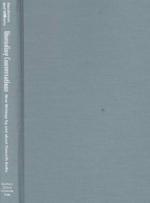|
This section contains 715 words (approx. 3 pages at 300 words per page) |

|
[In The Philosophy of Literary Form,] Mr. Burke stands in the line of critics like Richards and Empson whose key questions are: What does poetry mean? Why is it written? How does it accomplish its end? Such a criticism could only arise within a society which says: "I don't like poetry." It presupposes statements like: "Poetry is wrong because it says things which aren't true," or, "Poetry is wrong because it doesn't do anything useful." It is, in fact, literary apologetics and, like most apologetics, concerned less with the conversion of the heathen than with keeping up the morale of the faithful by showing that it can use the same weapons as well as or better than the enemy: against the logician it develops a more rigorous method of verbal analysis; against the psychologist and the sociologist it adopts the approaches of Freud and Marx.
No isolated quotations...
|
This section contains 715 words (approx. 3 pages at 300 words per page) |

|


